Cork marine scientist: We need to protect the ocean
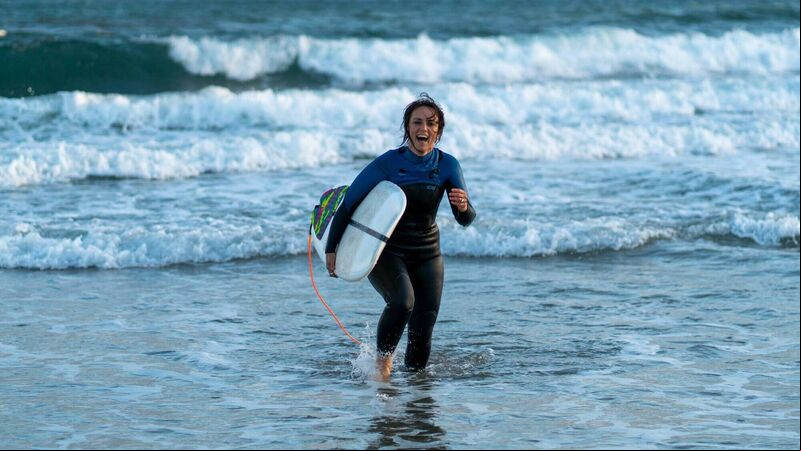
When it comes to how much the human species needs the ocean, that astonishing fact is just the tip of the iceberg, marine scientist Mairéad O’Donovan says.
“We’ve always been told that our oxygen comes from trees and our water comes from rivers,” the Castlefreke native says.
“I ask kids in school, ‘where does your drinking water come from?’ 97% of the planet’s water is the ocean. It’s a massive reservoir that’s sustaining life on earth.”
Mairéad is speaking in her car; she’s just changed out of her wetsuit following a surf on her much-loved local shoreline.
A UCC zoology graduate who specialised in marine mammal research, Mairéad now works for international sailing event The Ocean Race, formerly the Volvo Ocean Race, as an ocean literacy and education outreach officer.
Under lockdown, she produced a series of videos for RTÉ’s Home School Hub: in Scoil na Mara, Mairéad explores the seashore close to her home in Ardfield near Clonakilty, on Red Strand and Long Strand Beach. She gives kids some fascinating and yet easily absorbed facts about all sorts of sea life, and the ocean itself.
Her life-long fascination with all things related to the sea began, the 39-year-old says, in her own childhood growing up on the rugged West Cork coastline.
“I grew up a mile from Owenahincha,” she says. “My parents weren’t water people, but we were just always outside and always at the beach. I would go to the beach after school; in secondary school I even bringing my homework down with me.”
In her teens, Mairéad became a lifeguard and took up surfing while finishing her secondary education in Clonakilty. The bug for the board sport bit deep.
“Basically, a lot of my life revolved around making sure that I was able to surf,” she says with a laugh.
“There’s been a crossover with my work because I studied zoology and got into environmental work. There are instances where I was working on a contract and it was in a really good place to surf.
“When you’re doing what you love, it brings you to the right place. It might not be a conventional career trajectory, but if you follow your ion, things work out.”

Mairéad has worked as a surf instructor in Ireland as well as in New Zealand and Western Australia, where her time in the water gave her some close encounters with the animals she loves so much.
“Some of the most magical moments have been surfing and having dolphins share a wave with you,” she says.
“In Western Australia, there would be humpback whales just cruising past the line-up, because we were on their migratory path. I’ve always felt incredibly privileged to get to enjoy the ocean because I surf; I get to be in places other people don’t get a chance to go. When you’re sitting in the surf and there are humpback whales breaching within a kilometre of you, that’s just awesome.”
Even onshore sightings of whales and dolphins still thrill Mairéad; as a marine mammal observer for various research groups, she has, she says, spent “a very long time standing on cliffs looking at the sea through a telescope. Every time you spot one, you get excited. There’s an incredible beauty and wonder to it, every time.”
Being so tuned in to the marine environment, Mairéad is keenly aware of the various man-made perils that are threatening the ocean’s ability to continue to flourish and life.
The picture she paints is breathtakingly bleak.
While the issue of ocean plastics is increasing in public awareness, Mairéad says there are other, possibly even scarier, fish to fry.
“The knock-on effects of ocean acidification are apparent, there’s biodiversity loss from unsustainable fishing practices and other habitat degradation,” she says.
“It’s not a pretty picture and all the pressures affecting the ocean are interconnected and kind of compound each other.
“Biodiversity loss would be my big concern, and the impact that climate change is having on the ocean.
“I think people don’t understand how much the ocean serves us in term of mitigating climate change. It’s just been absorbing so much of our impact over the years in of heat and carbon dioxide, and anthropogenic impacts are putting it under so much pressure.”
Humans are not marine mammals — while shorelines may have played a role in our evolution, the ocean itself is not our habitat and its deeps remain a mystery to most people. Is this the reason why we have a curious blind spot regarding the danger the ocean is in?
“I do think there’s always been this perception that the ocean is too big to fail and that it could just keep absorbing everything, that we could keep fishing at a vast scale and keep throwing our waste into it,” Mairéad says.
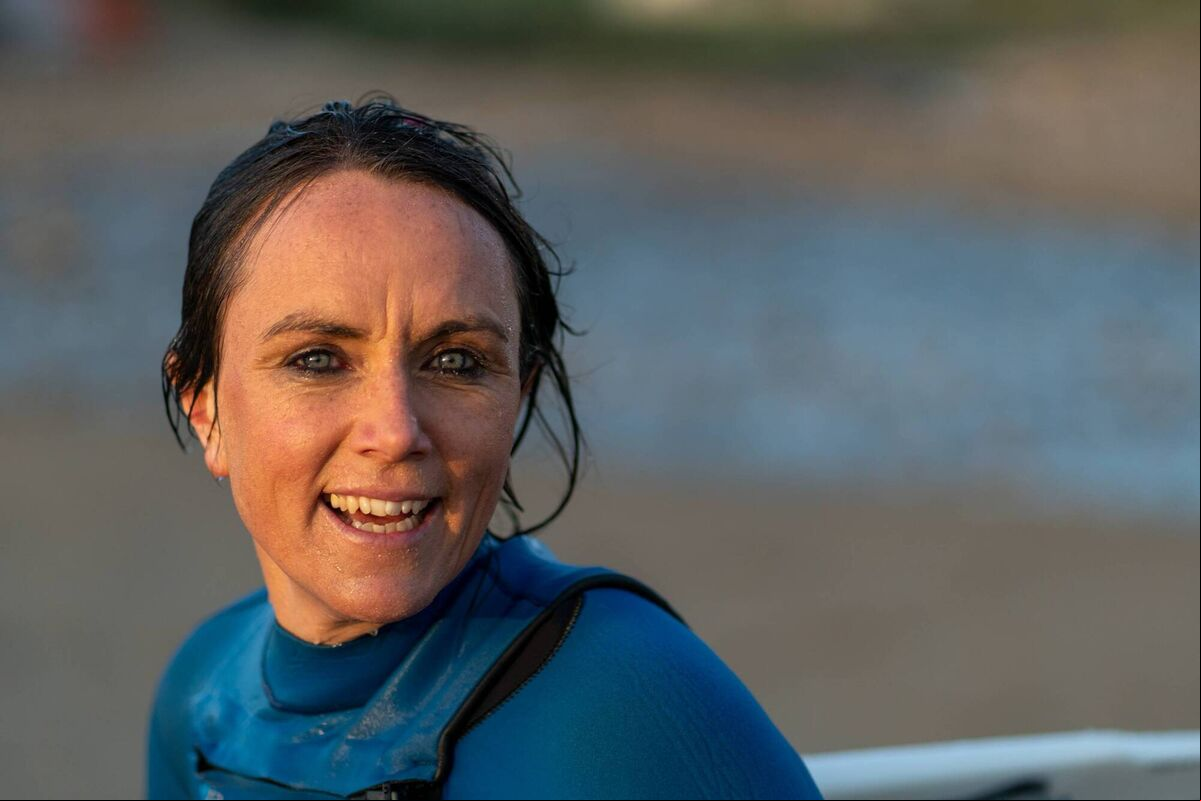
“But I hope that by highlighting the fact that the ocean sustains our life on land, people will become more aware of the need to protect it.”
It’s also important for people to realise that our land-based activities — agriculture, reliance on petrochemicals, waste production — end up impacting the seas.
“We need a holistic understanding of the world as one big system,” Mairéad says.
“The impacts we create on land are ultimately going to affect the ocean.”
As an island nation with a marine territory ten times the size of our land mass, Ireland needs enlightened policy-makers who are driven by an understanding of the ocean as an ecosystem and not just an endless resource, Mairéad believes. But there are complexities.
“The EU Common Fisheries Policy has not served Irish fishermen and it hasn’t served the oceans,” she says.
“I think our government could and should do a lot more to help indigenous smaller fishermen to biodiversity, and that needs to come from policy. A little like in agriculture with the CAP, they should and could do a lot more to reward protection of the environment instead of just rewarding exploitation of resources.”
An EU biodiversity strategy for 2030 launched recently could have some glimmers of hope, Mairéad says.
“There are quite ambitious targets to designate 30% of the ocean territories to marine- protected areas,” she says. “The Irish government have a responsibility to meet those targets and actually implement them instead of it just being something that exists on paper. But they need to involve the fishermen, so that the societal part and peoples’ livelihoods are considered too.”
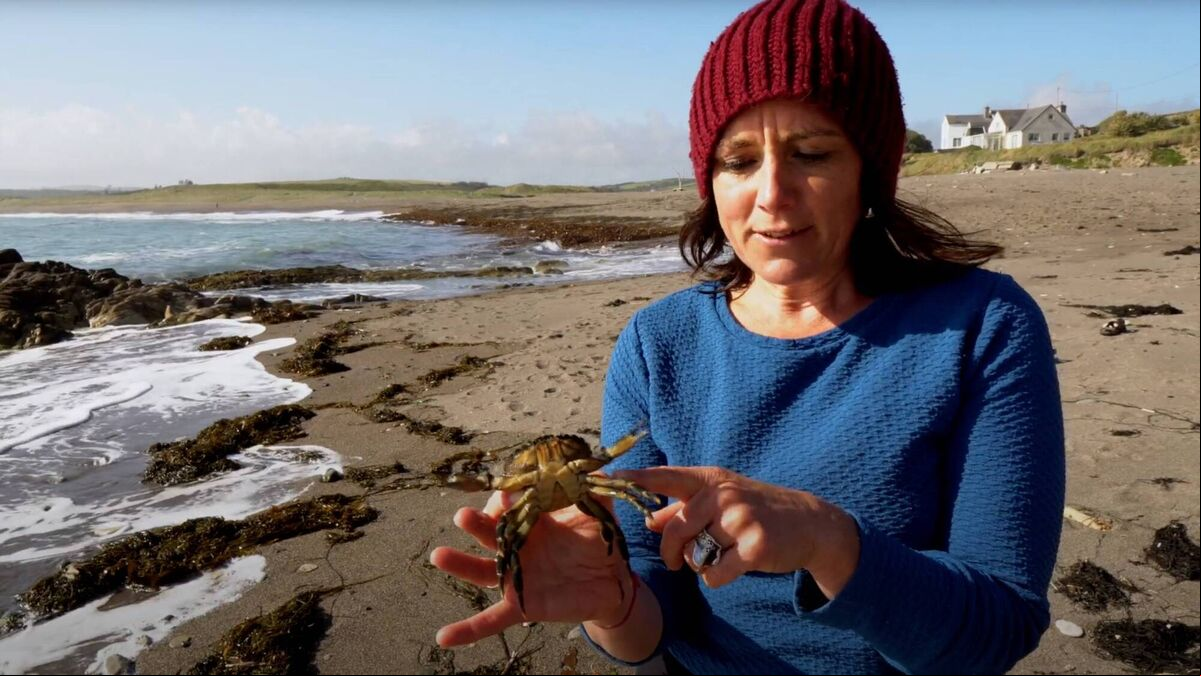
Back to education: if Ireland’s future lawmakers are graduates of Scoil na Mara, with a life-long love and respect for the sea fostered in them, the path ahead may contain an awareness of the ocean as far more than an endlessly exploitable resource.
Originally envisaged as a series of school workshops in West Cork for biodiversity week, and funded by Cork County Council’s community environment grant, Scoil na Mara, like so much else, was adapted for online under lockdown.
“There’s so much focus at the moment on the negative things that are happening and the challenges we’re facing environmentally, but I wanted to focus on what’s good and nurture that fascination for what’s around us,” Mairéad says.
“I’ve always been so heartened by children’s enthusiasm and fascination for animals. It’s not something you need to teach them to be interested in: it’s innate. Why do we lose that fascination?
“I think it’s so important to nurture it in younger learners. We’re all a part of the biodiversity bigger picture. We need to appreciate the wonder that’s on our doorstep, that we’re surrounded by.”
Scoil na Mara videos can be seen on the RTÉ homeschool hub or on the YouTube channel at: https://www.youtube.com/channel/UC4DIFMMTzeM-wOIqR0mEnng

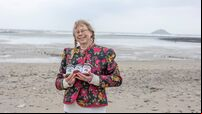
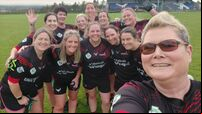




 App?
App?


